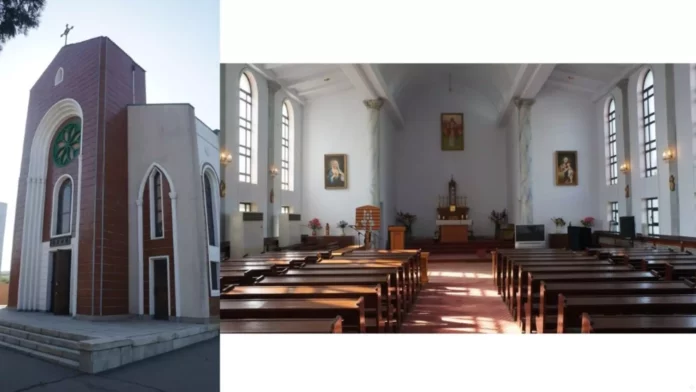In North Korea, Christianity is regarded by the authorities as an existential threat to the Communist State, as revealed by the latest report from Aid to the Church in Need, which describes the treatment reserved for those who have been in contact with Christians abroad.
“Persecuted and Forgotten?” This is the harsh title of the 2024 edition of the report published at the end of October 2024 by the Pontifical Foundation Aid to the Church in Need (ACN), which draws attention to the persecution of Christians in 18 countries.
Emblematic in more ways than one is the case of the Democratic People’s Republic of Korea—or North Korea, which is “democratic” in name only—where nationals who have had contact with Christians abroad are systematically placed in prison camps.
North Korea is a totalitarian state that has been ruled without interruption since 1948 by the Kim dynasty, who have established a version of Communism that surpasses anything Marx, Engels, and Lenin could have imagined in their political delirium. In such a context, it is difficult to obtain exact statistics on the number of Christians in the country, which the ACN nevertheless estimates at 0.38% of the population, or just under 100,000 faithful.
And yet, this small, demographically harmless group is considered a threat to State security by its leaders, which is why Christians are forced to go underground.
As the agency reports, the North Korean population is subject to a single credo: that of “Juche, an ideology of Marxist ‘self-reliance’ created by the country’s founder, Kim Il-Sung.” This ideology forms the backbone of North Korean society, and everyone in the country must blindly obey its principles.
As Fabien Herbert notes on the Les yeux du monde website, “while incorporating the Stalinist regime’s methods of indoctrination and terror, Kim Il-sung’s Juche doctrine blends a patriotism wounded by Japanese colonization (1910/1945), inscribing the North Korean struggle in a post-colonial prism.”
In this context, Juche has instituted a revisited decalogue, the Ten Principles, which goes beyond Stalinism to emphasize the quasi-religious obedience owed to the “Great Leader,” the living embodiment of the Big Brother of Orwellian dystopia.
As CNA reports, “To escape the country, North Koreans often use the extensive 880-mile border with China. If they manage to get past the tightly controlled border, the fugitives must reach a third border undetected, mostly Thailand, and seek asylum in the South Korean embassy, which will send them to South Korea.
“However, those who are apprehended by the Chinese authorities are repatriated to North Korea. According to Human Rights Watch, in April the Beijing government deported some 60 North Koreans.”
In its report, Aid to the Church in Need highlights the particular case of many defectors “who were found to have interacted with Christians while out of the country.” According to the organization, “All of them were sent to political prison camps, infamous for their harsh treatment of inmates.”
The report states that while recaptured fugitives generally serve reduced sentences, “for those who came into contact with Christianity – their incarceration in political camps effectively means a life sentence without parole.”
The Pontifical Foundation explains that in North Korea, “widely regarded as the worst country in the world in which to be a Christian,” citizens are graded according to their loyalty to the system and “religious believers are automatically classified as ‘hostile’ and subjected to acute persecution.”
One cannot fail to see in this a restless attitude on the part of the power exercised solely by Kim Jong Un -—he current “Great Leader”—reflecting the signs of weakness of a totalitarianism that has never succeeded in eradicating all forms of religion—particularly Christian—on its soil, and which fears at any moment that it may falter.




[…] Izvor: anglican.inc […]